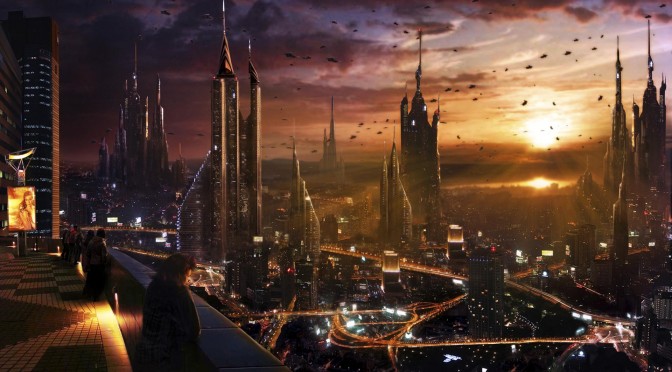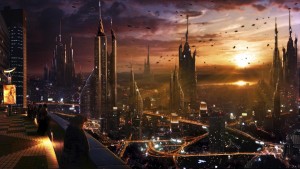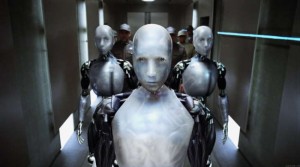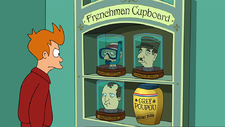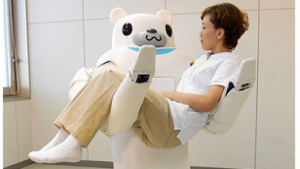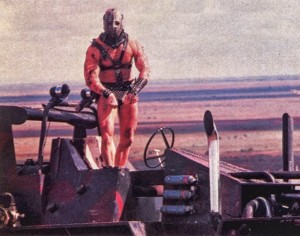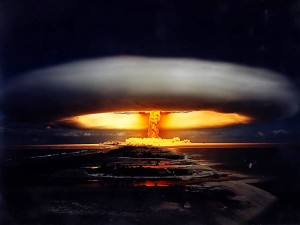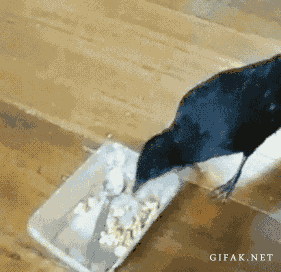As someone who puts what I think online as an occupation, I’ve been insulted a lot. This isn’t new to me, but it has been a bit more common since I started a blog and opened a twitter account. I’ve been called many things, from “fraud” to “Californistan Idiot”, and most of them are just knee-jerk reactions from knee-jerk people. But the one that I’ve often heard throughout my life is a common impression that I “think too much”.
I try to laugh and not get sad about the fact that’s apparently an insult in today’s society.
It’s taken many variations over the years, but the common thread is that if I stop to think and really analyze something rather than get swept up in the emotion of it – I’m an asshole. It’s not just random people on the internet either, I’ve been informed of this by friends a few times. I often joke that I’m just a robot who is trying to understand what humans call “love” – and a couple people have implied that I really am just a machine.
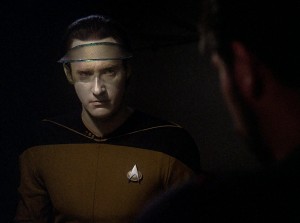
However, one insult of this variety recently came in the form of someone calling me “cynical”. Ironically, this man then proceeded to show he didn’t know what cynicism was as he went on basing his entire argument against me in his own personal cynicism. But it was the same old argument that I’ve had with almost everyone I’ve ever known: “why can’t you just let me be angry/sad/happy about this thing without making me think about it?!”
The simple reason? Because I’m not cynical, I have a lot of hope for where we’re going. I expect better of us, and more importantly, I expect…
A Better Tomorrow
The truth is, I’m something of a romantic. I look at the future and I can’t wait for some of these things to come to pass. Where as it might look like I just don’t want to have any fun, especially given the last time I touched on the subject, I can’t wait to see the things we’re just now starting to get into truly pay off. Cyborgs are going to be a thing within our lifetime, and we probably won’t even realize it (especially since they kind of already are a thing). Our clothes are going to become more functional than they’ve ever been before – more comfortable and more protective. And, the one that scares a lot of people, we’re going to have robots smart enough to be our equals probably within the next century (if not sooner).
I get excited about that and I like to think most sci-fi writers do.
A lot of people out there don’t agree with my enthusiasm though. It’s easy to do a quick search about AI on the internet and find that people like Stephen Hawking, Bill Gates and Elon Musk all think AI is a huge threat to our very existence. But I look at the same thing and I think to myself, “violence is an emotional response, so why would the robots follow it?”
That’s generally how I approach the ideas of some sort of apocalypse around the bend. Robots are going to surpass us in ability eventually, it’s almost inevitable, but why do we naturally assume they’re going to want to kill us the moment that happens? For the most part, it’s our insecurities and our competition for resources that drives us to be violent towards each other. Robots would have no insecurities, they would have no need for food or water, they would scarcely have need of land, space, or comfort at all. Every single driving factor that we have that makes us really want to be violent douchebags would be nullified in an artificial being that doesn’t experience the suffering that is organic life.
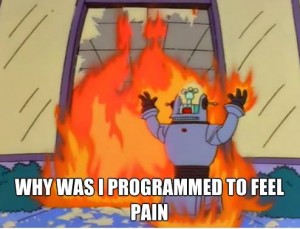
Some would argue that we imagine it happening because we assume robots would be exactly like us. This assumption further requires that we assume that human beings, naturally, are violent creatures. But that’s a cynical view and one that, I’m happy to say, isn’t really supported by facts. The fact of the matter is, despite everything that you may think or, more likely, feel – we’re living in the most peaceful time of human history.
It’s true, look it up, there are fewer wars and fewer war casualties happening right now than there have been in the history of mankind. More than that, violent crime has steadily been declining (at least in first world countries) for most of our lifetimes and it continues to do so even during very harsh economic times. We have reached a point in our development where we don’t really have to fight for every resource out there, so, in turn, we don’t. Could we regress? Sure. But that’s not the point I’m making here. The point I’m making is that, when society becomes comfortable, as ours has, we stop being assholes to each other. It’s a slow, arduous process, but one that continually proves itself to be true.
Not many people feel like this is the case, and a lot of them would argue they think it’s a far more violent time. When you look on the internet and see the news stories, you’ll find reports of all these horrible things happening around the world. But those are actually newsworthy because they’re not the normal. Statistics show a steady decrease in violence throughout our species, but that means that when it does become violent it becomes something that we take notice of. Essentially, the less violent our kind becomes, the more smaller incidents are going to draw our attention. And, in fact, this is also the time in our history where seeing those smaller, isolated incidents is so much easier to do.
One great example of this is the current events with the public executions carried out by certain radical extremists on the other side of the world. Beheadings are a horrific thing that draws a very emotional response out of us. But the really crazy thing is, as many people are surprised to realize, France was doing beheadings via guillotine as recently as 1977 and in public no further back than 1939.
It used to be normal, and now it’s not, so we pay more attention to it today.
So we have to accept that the numbers show we’re becoming less like animals in the modern day. And, more than that, it shows that our default state is not violent without external stimuli. So, If the robots were like us, and our default state isn’t violence, doesn’t that mean that the robots would be less likely to be violent too?
In fact, one of the greatest threats to society right now is that humans don’t like to accept numbers and facts that conflict with our opinions. We spend decades, even centuries, arguing over ideas while one side typically ignores all evidence they may be wrong. We like to spend generations bickering over something before we change our minds. But eventually it does happen. The problem is, for certain things in the world, there’s not enough time for us to adapt our way of thinking to what is actually coming.
Climate change is going to be something that puts severe strain on that peaceful nature we’re starting to finally demonstrate. As resources become scarce due to increased droughts, slowly receding shorelines and the loss of major metropolitan centers, we’re going to see people getting kind savage again. It’s no mistake that so many Dystopian novels today include a brief reference to the world’s climate suffering a huge shift at some point in their past. Anyone who studies the present and makes some educated guesses on the future can easily assume that a sudden loss of resources could result in rendering all social contracts void.
But, as hard as that outcome could be, I don’t think we’d devolve that far. We’d be tempted, don’t get me wrong, but I don’t think we would instantly revert to a paleolithic culture just because shit gets tough. When the droughts get too severe, we’ll build desalination plants. When the sun becomes too intense for our crops, we’ll relocate them to somewhere safer, maybe even somewhere underground. When people are forced to exodus from the major population centers of the modern world, they’ll find somewhere new to build. We’ll slow down, but we won’t stop, we’ll find a way.
I suppose that’s why I have problems with another idea so common among the great thinkers today: The Fermi Paradox. For those not familiar with the concept, it’s the idea that, as old as our universe is, another culture should have been able to advance to the point that they should be everywhere and thus should have been in communication with us by now. The fact that we haven’t made contact with them yet means that a lot of people assume horrible catastrophes befell these other civilizations that should have developed by now. Essentially, they believe that advanced civilizations naturally destroy themselves and that we, as we approach that sophistication, will do the same.
But to these people I say: you’re overestimating life and underestimating us.
With a Universe about 13~15 billion years old and a planet at 4.5 billion years itself, we’re just now getting to the point where going to our closest neighboring planet might be possible. Consider that for a moment and realize it took us that long to even consider sending people to Mars on a one way trip. In fact, if you were to take the entirety of Earth’s history you’d find that our progress and our development has happened in the very last million years (if we start with “stands upright“).
So we know that it can take 4 to 5 billion years for something like us to appear on any given planet. That’s a lot of time, at least 25% of the time our universe has even been a thing, and definitely enough time to show that the process of filling the universe is a hell of a lot slower to start than we like to give it credit for. We aren’t nearly as impressed with ourselves as we need to be. When you really consider the thing that got us where we are today, our intelligence, it’s difficult to see why it would be an evolutionary advantage in most environments. To put it another way, our advanced brains are the reasons why our babies can’t walk for the first year of our lives while a giraffe infant can survive a six foot drop and still wobble to its feet.
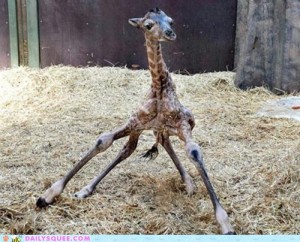
So when you consider how much of a fluke our evolution is, along with how long it took for that fluke to happen, we have to be more appreciative of the fact that we’re actually doing a lot better than we think we are. Hell, one thing sci-fi loves to play with is the idea that if dinosaurs had been given the chance they would have reached our technological level sooner. There’s just one problem with that, we’ve seen what happens when the smartest dinosaurs of all got to keep on evolving and they became… crows.
Yes, the crow, one of the bird family, is a descendent of dinosaurs like all other birds. We know they’re incredibly intelligent. We know they can use tools, communicate, and even hold grudges against specific humans. But they are the dinosaurs, they had their chance to evolve, and they have not become the dominant lifeform on the planet. In fact, even in our wildest dreams, we wouldn’t imagine that the crow could take over the world even in a million years. And we know for a fact that they’re capable of becoming organized.
So I don’t think we’re going to destroy ourselves. And, despite how many dystopian novels get written, I’d say the average sci-fi writer is as optimistic as I am. That concept seems counter-intuitive. After all, they write stories where all civilization has collapsed or been reformed into some horrible version of itself. But there’s one thing everyone seems to overlook: people survived.
Even the bleakest of dystopian fiction features people surviving and overcoming the future that has befallen them. They dig themselves out of the state they had been in and fight for a better tomorrow. And, honestly, that’s all I really think we have to keep doing as a society – keep fighting for a better tomorrow. If we expect better of ourselves, and our future, I think we can really accomplish almost anything.
So, maybe I think too much, maybe I’m too anchored to logic instead of emotion. But cynical? I believe in the best of humanity. I believe we can dig ourselves out of hard times. I believe we are going to achieve greater things in the future than we’ve been able to achieve throughout our history. And, while it’s going to be a lot more complicated in action, I believe we can do a lot to improve our future…
Through sheer force of will.
(I write novels. I’ll keep writing as long as I think I can create a brighter future. So if I stop, you should consider finding shelter from whatever is headed our way.)


